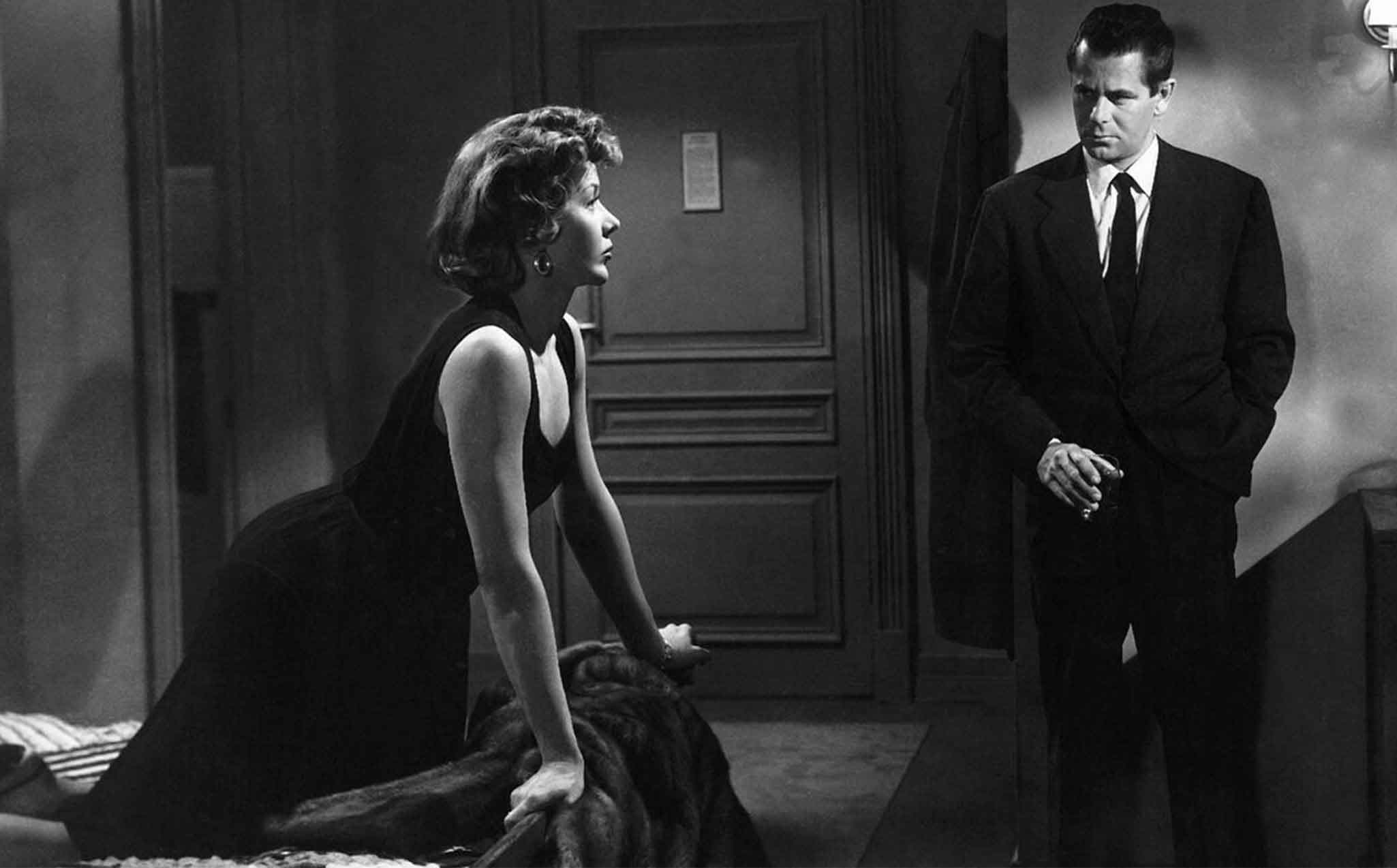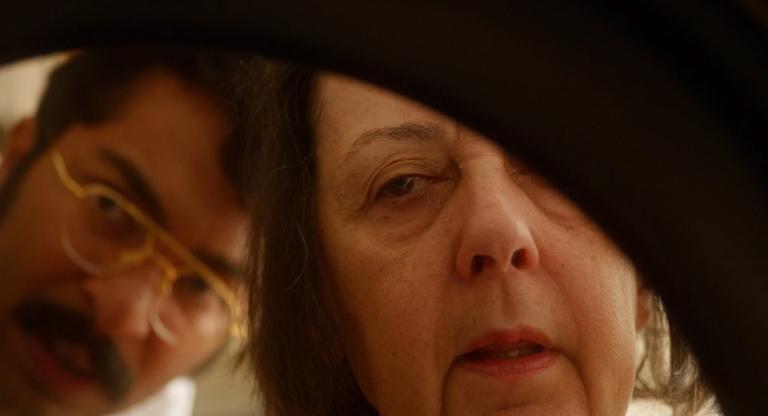“You gotta take the bad with the good,” says moll Debby Marsh (Gloria Grahame). She’s talking to straight-arrow cop Sgt. Dave Bannion (Glenn Ford) in Fritz Lang’s The Big Heat, and he replies, “Is the good good enough?” It is a fitting distillation of the film, in which an upright cop brushes up against the local crime syndicate when he refuses to stop asking questions about a fellow officer’s suspicious suicide. But is the good cop good enough?
Like many Lang films, The Big Heat involves one man at the mercy of a vast conspiracy. In this case, the conspiracy is not particularly shadowy or diabolical as it is in, for instance, the Dr. Mabuse films. From the beginning, Lang reveals everyone’s duplicity—thugs bark at subordinates before immediately cowering to their superiors; police commissioners play cards with gangsters; an emotionless widow pretends to grieve as Bannion enters the room. The world is full of evil, and everyone is on the take, but they keep up a “clean and wholesome” appearance so that even the thugs’ watering hole can be mistaken for a monastery. The conflict arises because Bannion desperately wants to believe in a moral order and refuses to see the obvious. Perhaps this makes him “good,” but to the crime boss Mike Lagana (Alexander Scourby), it makes him a “dummy,” a word he reserves for anyone on the right side of the law, or for criminals who get caught.
Everyone around Bannion—even his superiors—is in Lagana’s pocket, so we too suspect that Bannion is stupid. “I’m stupid because I want some answers about a murder, is that it?” he asks Lagana, who replies “Shut up and get out.” We begin to suspect that it isn’t moral righteousness that guides him, but rage, jealousy and stubbornness—a “hate binge” as a fellow officer describes it. Honest cops like him have trouble “paying the rent” while criminals live in “immaculate” houses, and he’s disgusted by their ill-gotten gains. His rage makes him careless, directly resulting in more than a few murders (almost exclusively of women) including, eventually, that of his own wife (Jocelyn Brando, Marlon’s sister). After she dies, Bannion becomes colder but no more sensible. He is driven to protect Debby, the girlfriend of thug Vince Stone (Lee Marvin, as perhaps the most ruthless villain in all of film noir) who maims her face with hot coffee.
Half of Debby’s face is disfigured from the burns, the other left untouched, in a forthright, if offensive, demonstration of the dichotomy between good and evil (it also lends new meaning to her belief that “You gotta take the bad with the good”). She tries to cheer herself up, saying, “I can always go through life sideways” and then Lang takes her up on it with a meta-joke, always shooting her from the unblemished right side (naturally, the burned side is the sinister left). Seeking solace, she asks Bannion to tell her about his dead wife. Staring off into space, he can only muster details about her that we already saw in their brief scenes together, suggesting either a marriage consisting of bland routine or, more accurately, five minutes of screen time.



